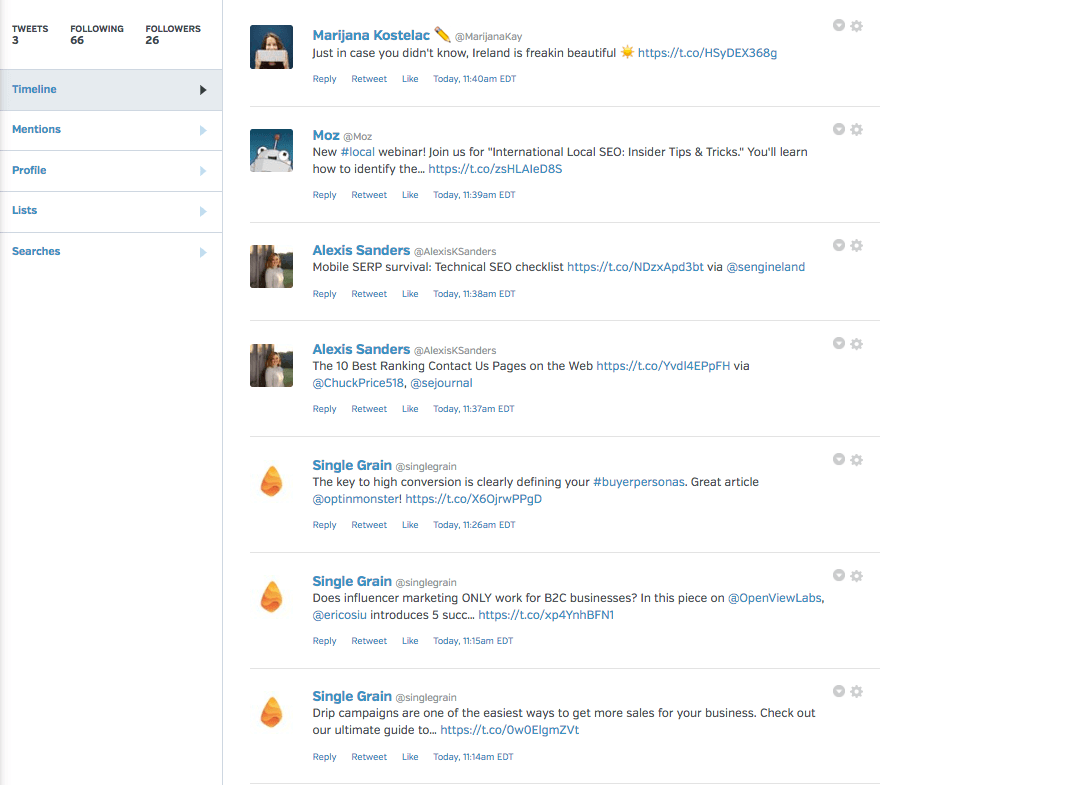What are twitter 👩🔬 SEO Experiments?
👩🔬 SEO experiments are small, straightforward weekly tests and/or aggregation of interesting data that aim to develop a deeper understanding of search engines (particularly Google).
Occasionally (okay, most times) SEO experiments involve breaking best practices to simply understand what happens. This often inspires a greater appreciation for why best practices exists, but sometimes shows unexpected results!
Personally, my favorite aspect of the experiments relates to the conversations in each of the threads. SEOs with differing experiences are given a forum to share what they’ve seen, their thoughts on why something is happening, and ultimately, we all get to grow, becoming better digital marketers together!
Important note: Many SEO experiments are micro-testing. Because of this the information does not translate to all results. They’re simply interesting data points to consider and test when strategically relevant.
Where can I find all of these SEO Experiments?
All of the SEO Experiments are collected in the 2018 SEO Experiment Moment. I also recommend you follow Adam (@Adoubleagent)’s Technical SEO Tests.
Top 10 – 2018 SEO Experiments:
10. The amount Google crawls sites correlating with traffic groups
👩🔬SEO EXPERIMENT:
QUESTION: Does GSC’s “pages crawled per day – average” correlate w/clicks (new GSC, 3 months)?
RESULTS:
– Data visualized in images
– Appears clicks mostly correlate w/higher page crawl per day avgNOTE: # of total pages, server capabilities not included pic.twitter.com/TgjkNpZkBO
— Alexis Sanders (@AlexisKSanders) June 26, 2018
9. Amazon rich results without Schema.org markup
👩🔬🆕 SEO EXPERIMENT:
QUESTION: Is Amazon’s receiving special treatment for rich results?
RESULT:
– Upon copying source copy for specific page, rich results were triggered (making it look positive)
– Rich results for product-only page were not triggered (negative results) pic.twitter.com/CfP5pAIy3I— Alexis Sanders (@AlexisKSanders) April 9, 2018
8. Timed JavaScript that dynamically counted seconds to update title tag updated at 19 seconds
👩🔬 SEO EXPERIMENT: ⏱️
QUESTION: What time does Google choose to index with dynamic counting JavaScript title tags?
RESULT:
– SERP: 19 seconds
– Mobile-Friendly Testing Tool: 4s (consistently)
– Rich Results Testing Tool: 5s (” “)🛑 Results for one test, not scaled pic.twitter.com/MS4KGdA1vj
— Alexis Sanders (@AlexisKSanders) June 19, 2018
7. CTR by device by industry CTR data showed some surprising results
👩🔬 SEO EXPERIMENT from SMX
QUESTION: What mobile updates has Google released over the last 8 years?
RESULTS:
– Updates significantly increased after 2015 (year mobile device usage surpassed desktop) pic.twitter.com/sn97tzSuxP— Alexis Sanders (@AlexisKSanders) June 13, 2018
6. Resource hinting performance testing
👩🔬🆕🏎️ SEO EXPERIMENT:
QUESTION: Resource hinting w/350+ images on a following page?
FINDINGS p1:
• It is vital to test multiple times due to the variance within networks
• Prefetch-ing specific resources led to a 53%-94% increase in page speed to the subsequent page pic.twitter.com/QafNwinR9R— Alexis Sanders (@AlexisKSanders) February 14, 2018
5. Featured snippet analysis
👩🔬🆕 SEO EXPERIMENT:
QUESTION: Featured snippets?
HOW: Review +17K quick answers (thank @brightedge‘s data cube ⏹️)
RESULTS:
– Avg words: 5
– Avg char len: 28– Question words included: 17%
– Compare words included: 9%
– Prepositions included: 20%— Alexis Sanders (@AlexisKSanders) February 19, 2018
4. JavaScript and tagging experiments (including: title, meta data, noindex, and canonical tweets)
👩🔬🆕 SEO EXPERIMENTS:
QUESTION 1: <title> in <head> or <body>?
RESULTS 1: As expected <title> in <head> triumphs.QUESTION 2: <title> injected with JS?
RESULTS 2:
– Google- uses DOM title (i.e., renders JS)
– Yandex- originally used URL, then updated to HTML title <title> pic.twitter.com/duiBLzqI3l— Alexis Sanders (@AlexisKSanders) March 6, 2018
👩🔬🆕 JAVASCRIPT/NOINDEX EXPERIMENT:
QUESTION: If noindex injected into the <head> section, will Google recognize and remove from index (even if it’s a small site)? How long?
RESULT: Yes. Google removed from index within ~20 hours, using DOM w/small site. Details in image. pic.twitter.com/MVYIpkl9AG
— Alexis Sanders (@AlexisKSanders) January 3, 2018
3. SEO Tools using HTML or JavaScript/DOM thread
https://twitter.com/AlexisKSanders/status/950817323186905089
Bing Mobile-Friendly Testing Tool: DOM pic.twitter.com/3NYIv7yQN3
— Alexis Sanders (@AlexisKSanders) January 9, 2018
Facebook OGP Debugger: HTML pic.twitter.com/ahHnktxiwh
— Alexis Sanders (@AlexisKSanders) January 9, 2018
Google's Mobile-Friendly Testing Tool: DOM pic.twitter.com/7aBjasDrT3
— Alexis Sanders (@AlexisKSanders) January 9, 2018
Google's Rich Snippet Testing Tool: DOM pic.twitter.com/ThjoUmc2bI
— Alexis Sanders (@AlexisKSanders) January 9, 2018
https://twitter.com/AlexisKSanders/status/950817336663126016
Twitter Summary Cards: HTML pic.twitter.com/WljVcJXTgU
— Alexis Sanders (@AlexisKSanders) January 9, 2018
Yandex's Structured Data Testing Tool: HTML pic.twitter.com/08N4sEAynR
— Alexis Sanders (@AlexisKSanders) January 9, 2018



2. Rich results CTR for ecommerce sites
👩🔬🆕SEO EXPERIMENT FROM #SMX ✨🔍
QUESTION: For eCom sites (w/Product markup implemented), how are pages w/rich results (⭐️ & 💲) performing compared to pages w/o?
RESULT: For a majority of eCommerce sites with Product rich results, rich results will outperform pages w/o. pic.twitter.com/QV0QjVVhTu
— Alexis Sanders (@AlexisKSanders) March 15, 2018
1. CTR by industry
👩🔬SEO EXPERIMENTS:
QUESTION: CTR by position by industry?
METHOD: ~400 anonymized sites by industry, GSC impressions & clicks by position
RESULTS:
– Insurance showed higher CTR for position one
– Retail and financial showed upticks on position two
– Clear position bias pic.twitter.com/CcTl4afbgk— Alexis Sanders (@AlexisKSanders) May 29, 2018
Why do SEO experiments?
I was enchanted by Vaidehi Joshi’s basecs Medium blog, in which she published an article every week throughout 2017 relating to basic computer science concepts. Her dedication and commitment to publishing and deepening both her and community member’s knowledge was inspiring. When reflecting on 2018 goals, I wanted to do something that was consistent, that would push me to learn more about SEO, and would be a source for transparent, open information sharing. SEO Experiments were my way of combining thought interests.

Now social media marketers can get the credit they deserve by automatically delivering Facebook, Twitter and LinkedIn reports that prove value.



